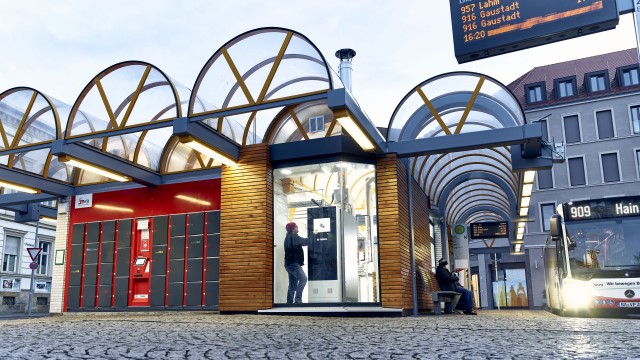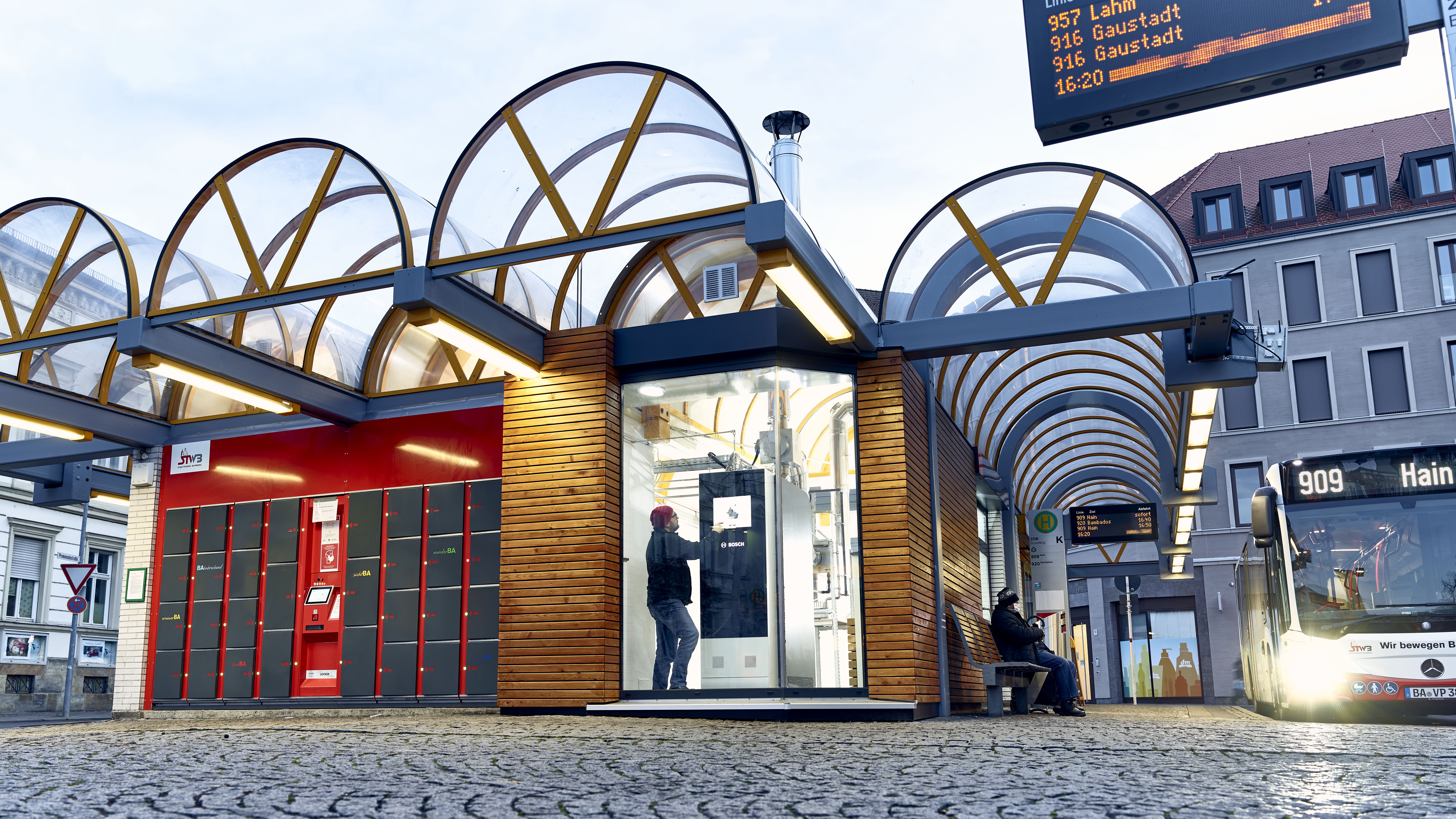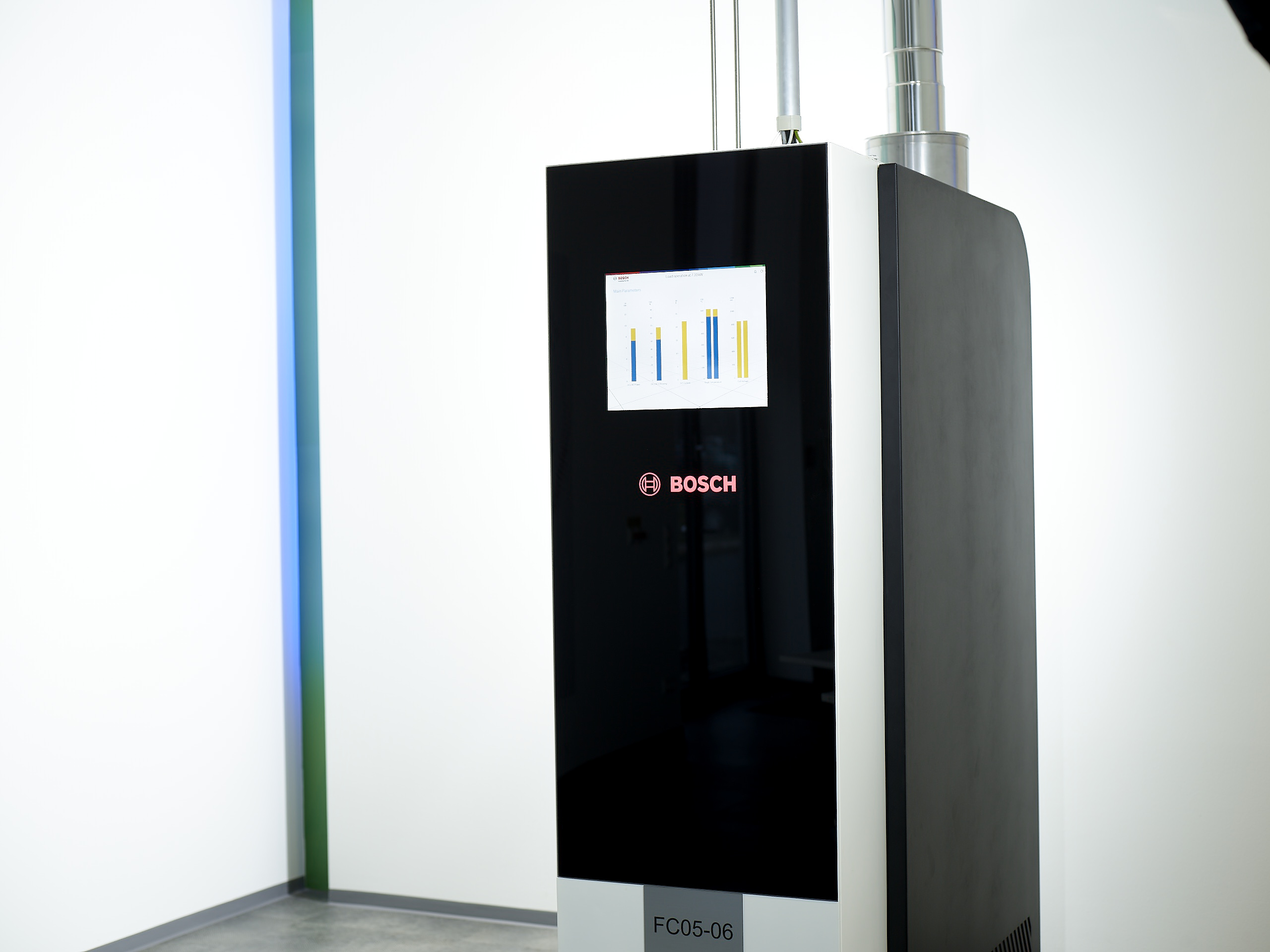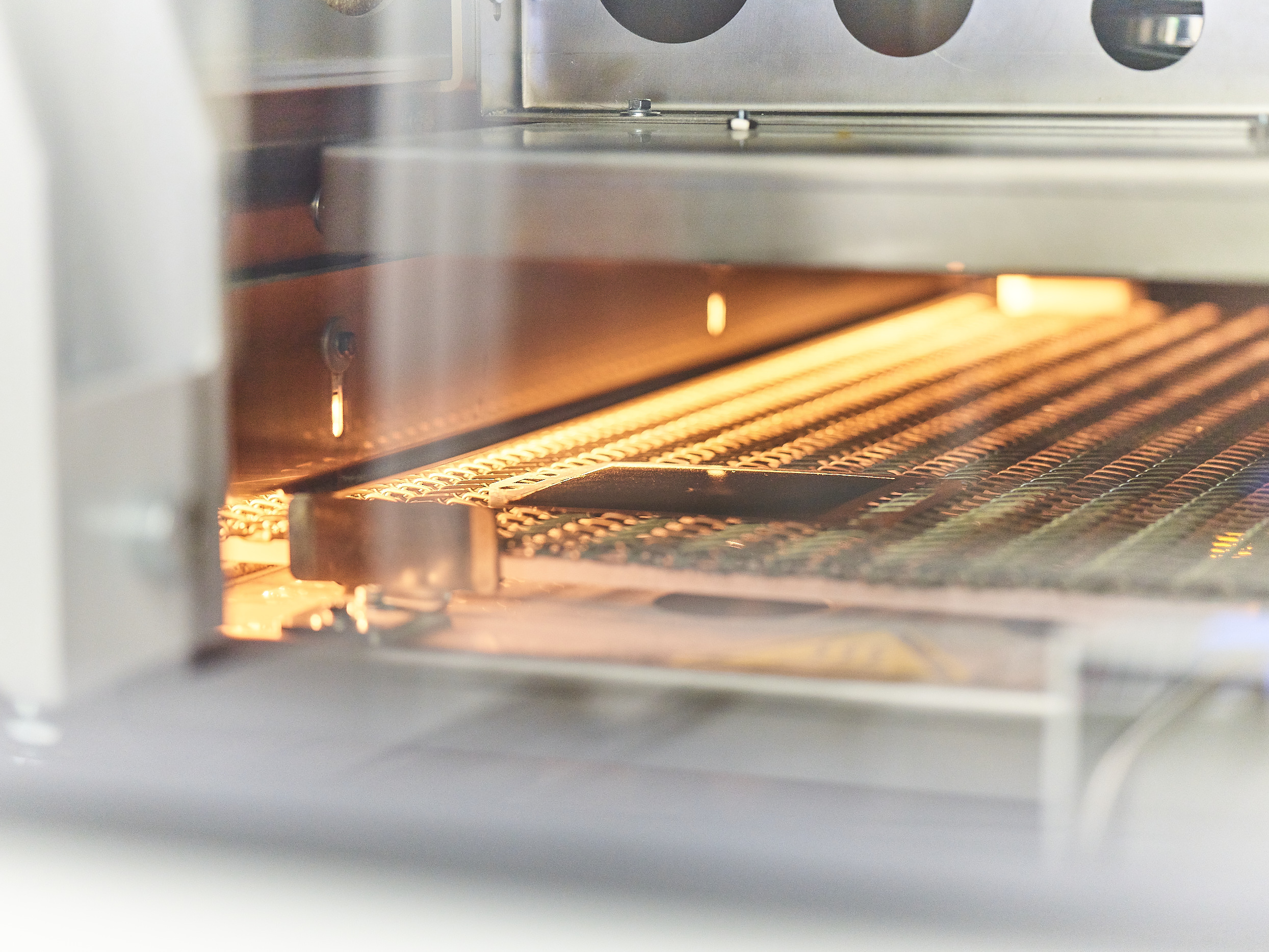Bamberg and Stuttgart, Germany – Working with Stadtwerke Bamberg, the city’s public utilities, on a stationary fuel cell in Bamberg’s city center, Bosch is for the first time demonstrating its vision of a decentralized, climate-friendly energy supply of the future. The two partners have taken a micro power plant based on solid-oxide fuel cells (SOFC) into operation at Bamberg’s central bus station (ZOB). Measuring roughly two meters high, the refrigerator-sized plant generates around 10 kilowatts of electricity, which is enough to meet the annual requirements of more than 20 four-person households in the neighborhood of the bus station. With an overall efficiency of 60 percent for power generation and more than 85 percent with additional use of heat, this stationary fuel cell is clearly superior to other energy converters of its size. The heat it produces is used by a bakery at the bus station for its heating and hot water systems. “As we move to alternative forms of energy, decentralized power supplies are becoming very important. The stationary fuel cell is ideally suited for the expansion of local power and heating networks in urban neighborhoods,” says Dr. Wilfried Kölscheid, who is responsible for stationary fuel cells at Bosch. “We are pleased to have found a partner in Stadtwerke Bamberg with whom we can jointly demonstrate what our stationary fuel cell is capable of.”
About Bosch
The Bosch Group is a leading global supplier of technology and services. It employs roughly 412,000 associates worldwide (as of December 31, 2025). According to preliminary figures, the company generated sales of 91 billion euros in 2025. Its operations are divided into four business sectors: Mobility, Industrial Technology, Consumer Goods, and Energy and Building Technology. With its business activities, the company aims to use technology to help shape universal trends such as automation, electrification, digitalization, connectivity, and an orientation to sustainability. In this context, Bosch’s broad diversification across regions and industries strengthens its innovativeness and robustness. Bosch uses its proven expertise in sensor technology, software, and services to offer customers cross-domain solutions from a single source. It also applies its expertise in connectivity and artificial intelligence in order to develop and manufacture user-friendly, sustainable products. With technology that is “Invented for life,” Bosch wants to help improve quality of life and conserve natural resources. The Bosch Group comprises Robert Bosch GmbH and its roughly 490 subsidiary and regional companies in over 60 countries. Including sales and service partners, Bosch’s global manufacturing, engineering, and sales network covers nearly every country in the world. Bosch’s innovative strength is key to the company’s further development. At 136 locations across the globe, Bosch employs some 82,000 associates in research and development.
The company was set up in Stuttgart in 1886 by Robert Bosch (1861-1942) as “Workshop for Precision Mechanics and Electrical Engineering.” The special ownership structure of Robert Bosch GmbH guarantees the entrepreneurial freedom of the Bosch Group, making it possible for the company to plan over the long term and to undertake significant upfront investments in the safeguarding of its future. Ninety-four percent of the share capital of Robert Bosch GmbH is held by Robert Bosch Stiftung GmbH, a limited liability company with a charitable purpose. The remaining shares are held by Robert Bosch GmbH and by a company owned by the Bosch family. The majority of voting rights are held by Robert Bosch Industrietreuhand KG. It is entrusted with the task of safeguarding the company’s long-term existence and in particular its financial independence – in line with the mission handed down in the will of the company’s founder, Robert Bosch.
Additional information is available online at www.bosch.com, www.bosch-press.com.









